RA Ibiza weekly: Next Wave, Ben Turner
- PublishedFri, Aug 1, 2014, 11:00
- Words
- Share
- We spent some time with one of the island's most forward-thinking outfits.
- Week 10 brought with it one of the season's most mouthwatering parties: Fuse Meets Next Wave. With that in mind, this week's column tells the Next Wave story. In addition, Ben Turner steps up for a thorough "Ibiza histories," and there are reviews of Glitterbox, Circoloco's star-studded 16th anniversary and tINI and the gang. For everything you need to know about the island in 2014, take a look at our comprehensive Ibiza guide.
A night with Next Wave
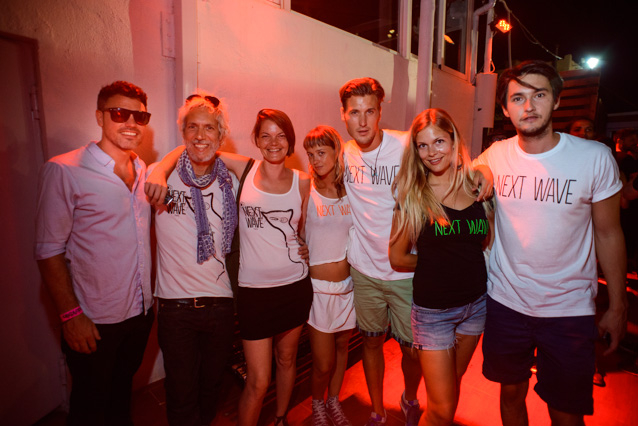 There are several reasons why middle-sized promoters don't have it easy in Ibiza. As prices continue to rise every year, visitors to the island grow increasingly more inclined to go with what they know, preferring to pay a little extra for a guaranteed good time at Space or Amnesia, rather than pay less and risk attending a half-empty party. The global rise of DJ culture hasn't helped either. With a different superstar on show every night of the week, lesser known artists and promoters have to graft day and night just to get a look in.
And then, of course, there are the superclubs. Their strict business approach and island-wide dominance leaves little room for smaller venues, making it very difficult for an alternative, underground scene to exist. All in all, pushing a niche sound in Ibiza can be a lonely business. Thankfully, though, that hasn't stopped people from trying.
Next Wave was founded by Tina Bavdek and Ricardo Quiroz in 2011. The pair met in Ibiza several years before, united by common friends and a shared love for a specific type of techno. In 2010, Quiroz started throwing parties in Privilege's Coco Loco room, booking the likes of Valentino Kanzyani, Masomenos and Rhadoo. But for one reason or another, Cigarra Under (named after a friend's internet radio station in his native Chile) never took off.
During its brief run, Bavdek, a regular at the events, would advise Quiroz on aspects of the party, drawing on her own promoting experience back home in Slovenia. When it became clear Cigarra was going nowhere, she suggested they work together. He accepted, and after some deliberation, they settled on Next Wave, named after a run of forward-thinking parties that came to a premature end at club Ambasada Gavioli in Ljubljana. "It fitted with us trying to show something different to the Ibiza scene," Bavdek explained over lunch in Santa Gertrudis.
The opening party took place on July 6th, 2011, in the 600-capacity basement of Marina Botafoch's Hotel Corso, headed up by Rhadoo and current Cadenza staple Dani Casarano. It went well, so they threw another a week later. After that, however, things took a left turn. The then-owner of the hotel fell ill, leaving his wife to cancel all future events. Next Wave, faced with the first of many hurdles in their existence, had to find a new home. After several weeks, they came across Ibiza Underground and finished the season, hosting a particularly memorable closing with Ricardo Villalobos. But with space for only 200 people on the dance floor, Next Wave decided to move again in 2012.
Starting at Club Punta Arabi in Es Canar ("open-air, by the pool, amazing location but too far away"), they bounced around La Sal Rossa in Playa d'en Bossa and La Trobada in Es Vive, before ending up at Privilege's newly christened Vista Club for the last week of August. Here they settled for a while, seeing out the season with six parties in six weeks. Villalobos returned for another momentous closing, and it felt as if Bavdek and Quiroz had struck gold. In 2013, they were invited back by Privilege to hold down their first summer residency.
There are several reasons why middle-sized promoters don't have it easy in Ibiza. As prices continue to rise every year, visitors to the island grow increasingly more inclined to go with what they know, preferring to pay a little extra for a guaranteed good time at Space or Amnesia, rather than pay less and risk attending a half-empty party. The global rise of DJ culture hasn't helped either. With a different superstar on show every night of the week, lesser known artists and promoters have to graft day and night just to get a look in.
And then, of course, there are the superclubs. Their strict business approach and island-wide dominance leaves little room for smaller venues, making it very difficult for an alternative, underground scene to exist. All in all, pushing a niche sound in Ibiza can be a lonely business. Thankfully, though, that hasn't stopped people from trying.
Next Wave was founded by Tina Bavdek and Ricardo Quiroz in 2011. The pair met in Ibiza several years before, united by common friends and a shared love for a specific type of techno. In 2010, Quiroz started throwing parties in Privilege's Coco Loco room, booking the likes of Valentino Kanzyani, Masomenos and Rhadoo. But for one reason or another, Cigarra Under (named after a friend's internet radio station in his native Chile) never took off.
During its brief run, Bavdek, a regular at the events, would advise Quiroz on aspects of the party, drawing on her own promoting experience back home in Slovenia. When it became clear Cigarra was going nowhere, she suggested they work together. He accepted, and after some deliberation, they settled on Next Wave, named after a run of forward-thinking parties that came to a premature end at club Ambasada Gavioli in Ljubljana. "It fitted with us trying to show something different to the Ibiza scene," Bavdek explained over lunch in Santa Gertrudis.
The opening party took place on July 6th, 2011, in the 600-capacity basement of Marina Botafoch's Hotel Corso, headed up by Rhadoo and current Cadenza staple Dani Casarano. It went well, so they threw another a week later. After that, however, things took a left turn. The then-owner of the hotel fell ill, leaving his wife to cancel all future events. Next Wave, faced with the first of many hurdles in their existence, had to find a new home. After several weeks, they came across Ibiza Underground and finished the season, hosting a particularly memorable closing with Ricardo Villalobos. But with space for only 200 people on the dance floor, Next Wave decided to move again in 2012.
Starting at Club Punta Arabi in Es Canar ("open-air, by the pool, amazing location but too far away"), they bounced around La Sal Rossa in Playa d'en Bossa and La Trobada in Es Vive, before ending up at Privilege's newly christened Vista Club for the last week of August. Here they settled for a while, seeing out the season with six parties in six weeks. Villalobos returned for another momentous closing, and it felt as if Bavdek and Quiroz had struck gold. In 2013, they were invited back by Privilege to hold down their first summer residency.
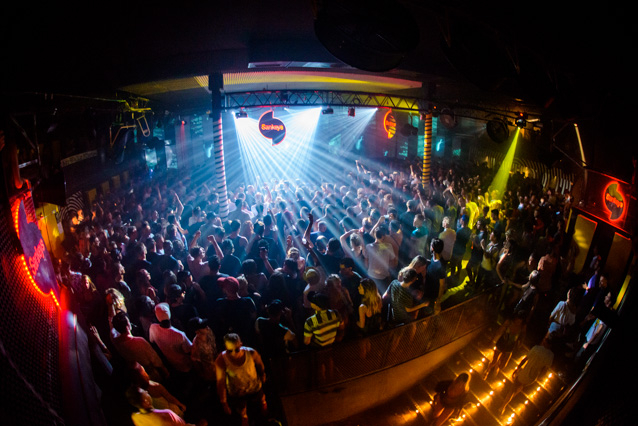 Things didn't work out. Opening in June, typically the season's slowest period, they could never get enough people through the door, despite a wealth of great bookings (Thomas Melchior, Onur Özer, Praslea.) "I loved that room, and we were really happy that they gave us the chance," Bavdek said. "But we couldn't find a common language with the venue. We were too different. We never wanted to be so big. To work with a venue like that you need an established clientele, a solid base, because in June there is nobody here. We didn't have that." After just four weeks, they called time on the residency.
You'd think after all that you might want to place your energies elsewhere. Instead, Next Wave dusted themselves off and returned in October for their annual Villalobos-led closing party. It was held at MOMA, beneath Hotel Garbi in Playa d'en Bossa, and was deemed a hot and sweaty success. Valued for their dogged determination, Next Wave were presented with various residency offers in 2014, but rejected them all. "It makes no sense. We already tried," says Bavdek. "I'm sick of sitting in business meetings trying to explain what this kind of music is. Sooner or later there is always this money issue arising. Like, 'It needs to be successful, it needs to be full!' But as soon as it gets like this, we don't want to be a part of it."
One of the clubs that offered them a regular slot was Sankeys, a conversation that would lead to this summer's five-party plan. The first three would run on Tuesdays in The Lab, alongside London event Fuse in the Basement, before switching to Wednesdays later in September.
For Bavdek, the partnership with Fuse was an obvious one. "We have a lot of the same clientele. The same goals. They're also not interested in big things, and they like a challenge." The similarities don't stop there. For one, music takes centre-stage at both parties. It might sound clichéd, but in Ibiza, where flashiness is rife, a stripped-back approach actually sets you apart from the rest. Similarly, Fuse and Next Wave each have their own small pools of artists that they draw from, keen to preserve a family-and-friends feel about what they do. Unlike this summer's other collaboration, Elrow + Kehakuma, Next Wave and Fuse are close enough to complement each other, while remaining different enough to offer the customer a truly valuable two-for-one experience. For these reasons and more, Tuesday's opening party was one of the best of the summer so far.
The day started as most days do in Ibiza: on the beach. Sporting simple Fuse and Next Wave t-shirts, the young, trendy promo teams weaved in and out of towels on a jam-packed Salinas, handing out flyers and stopping to talk to anyone that they felt might fit the vibe. "We're choosy about who we talk to," explained Luca Renton, the promo manager for Fuse. "It's important we attract the right crowd, people who really want to be there." Judging by the audience at Sankeys later that night, this meant a real mix of people, from the habitual British clubbers through to older, black-clad Europeans and the odd scruffy raver. From 2 AM onwards, The Lab was packed, busier perhaps than it's ever been. In the booth, Raresh was just coming to the end of his set, spinning typically groovy house.
Things didn't work out. Opening in June, typically the season's slowest period, they could never get enough people through the door, despite a wealth of great bookings (Thomas Melchior, Onur Özer, Praslea.) "I loved that room, and we were really happy that they gave us the chance," Bavdek said. "But we couldn't find a common language with the venue. We were too different. We never wanted to be so big. To work with a venue like that you need an established clientele, a solid base, because in June there is nobody here. We didn't have that." After just four weeks, they called time on the residency.
You'd think after all that you might want to place your energies elsewhere. Instead, Next Wave dusted themselves off and returned in October for their annual Villalobos-led closing party. It was held at MOMA, beneath Hotel Garbi in Playa d'en Bossa, and was deemed a hot and sweaty success. Valued for their dogged determination, Next Wave were presented with various residency offers in 2014, but rejected them all. "It makes no sense. We already tried," says Bavdek. "I'm sick of sitting in business meetings trying to explain what this kind of music is. Sooner or later there is always this money issue arising. Like, 'It needs to be successful, it needs to be full!' But as soon as it gets like this, we don't want to be a part of it."
One of the clubs that offered them a regular slot was Sankeys, a conversation that would lead to this summer's five-party plan. The first three would run on Tuesdays in The Lab, alongside London event Fuse in the Basement, before switching to Wednesdays later in September.
For Bavdek, the partnership with Fuse was an obvious one. "We have a lot of the same clientele. The same goals. They're also not interested in big things, and they like a challenge." The similarities don't stop there. For one, music takes centre-stage at both parties. It might sound clichéd, but in Ibiza, where flashiness is rife, a stripped-back approach actually sets you apart from the rest. Similarly, Fuse and Next Wave each have their own small pools of artists that they draw from, keen to preserve a family-and-friends feel about what they do. Unlike this summer's other collaboration, Elrow + Kehakuma, Next Wave and Fuse are close enough to complement each other, while remaining different enough to offer the customer a truly valuable two-for-one experience. For these reasons and more, Tuesday's opening party was one of the best of the summer so far.
The day started as most days do in Ibiza: on the beach. Sporting simple Fuse and Next Wave t-shirts, the young, trendy promo teams weaved in and out of towels on a jam-packed Salinas, handing out flyers and stopping to talk to anyone that they felt might fit the vibe. "We're choosy about who we talk to," explained Luca Renton, the promo manager for Fuse. "It's important we attract the right crowd, people who really want to be there." Judging by the audience at Sankeys later that night, this meant a real mix of people, from the habitual British clubbers through to older, black-clad Europeans and the odd scruffy raver. From 2 AM onwards, The Lab was packed, busier perhaps than it's ever been. In the booth, Raresh was just coming to the end of his set, spinning typically groovy house.
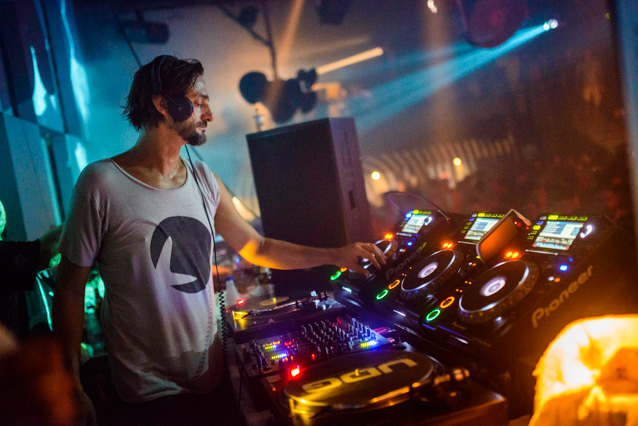 As Villalobos took over, people watched from the room's balconies. This gave the room a real warehouse feel. With so many bodies on the floor, the vibe was lively and loud, helped along by Villalobos' pace-setting excursions through freeform jazz and Latin numbers. Several tracks later, though, and we were in the grips of a banging techno set, highlighted by Floorplan's atmospheric "Re-Plant" remix of "Never Grow Old."
In the Basement, Fuse offered the club some respite from the oven-like temperatures elsewhere. Managing to hit the soundsystem's sweet spot, the swing of Julian Perez and Guti sounded punchy and crisp, without hurting the ears. The room was never at capacity, but given that someone of the stature of Villalobos was playing in The Lab, the Fuse boys more than held their own all night.
From there, things got twisted. Journeying into the nether regions of percussion and low-slung rave, Villalobos offset his rough rhythms with sinister yet seductive vocals. Able to indulge his more experimental side, it was a thrilling performance from start to finish. After a couple of trippy techno workouts to close, he signed off as he did at Cocoon two weeks ago, with a full-frontal slice of Brazilian samba. The place went nuts.
Tuesday shined a light on both parties, and showed Sankeys at its full potential. When full and firing on all cylinders, it's reputation as Ibiza's best underground club stands true. It felt markedly different to any other space on the island—darker and rawer—while still maintaining a cavernous superclub appeal. As for the collaboration, Ibiza can only benefit from more of the same. Taking on board Next Wave's tireless attitude and sense of self-belief, Ibiza could once again be a place of rebellious experimentation and musical discovery.
Ibiza histories: Ben Turner
As Villalobos took over, people watched from the room's balconies. This gave the room a real warehouse feel. With so many bodies on the floor, the vibe was lively and loud, helped along by Villalobos' pace-setting excursions through freeform jazz and Latin numbers. Several tracks later, though, and we were in the grips of a banging techno set, highlighted by Floorplan's atmospheric "Re-Plant" remix of "Never Grow Old."
In the Basement, Fuse offered the club some respite from the oven-like temperatures elsewhere. Managing to hit the soundsystem's sweet spot, the swing of Julian Perez and Guti sounded punchy and crisp, without hurting the ears. The room was never at capacity, but given that someone of the stature of Villalobos was playing in The Lab, the Fuse boys more than held their own all night.
From there, things got twisted. Journeying into the nether regions of percussion and low-slung rave, Villalobos offset his rough rhythms with sinister yet seductive vocals. Able to indulge his more experimental side, it was a thrilling performance from start to finish. After a couple of trippy techno workouts to close, he signed off as he did at Cocoon two weeks ago, with a full-frontal slice of Brazilian samba. The place went nuts.
Tuesday shined a light on both parties, and showed Sankeys at its full potential. When full and firing on all cylinders, it's reputation as Ibiza's best underground club stands true. It felt markedly different to any other space on the island—darker and rawer—while still maintaining a cavernous superclub appeal. As for the collaboration, Ibiza can only benefit from more of the same. Taking on board Next Wave's tireless attitude and sense of self-belief, Ibiza could once again be a place of rebellious experimentation and musical discovery.
Ibiza histories: Ben Turner
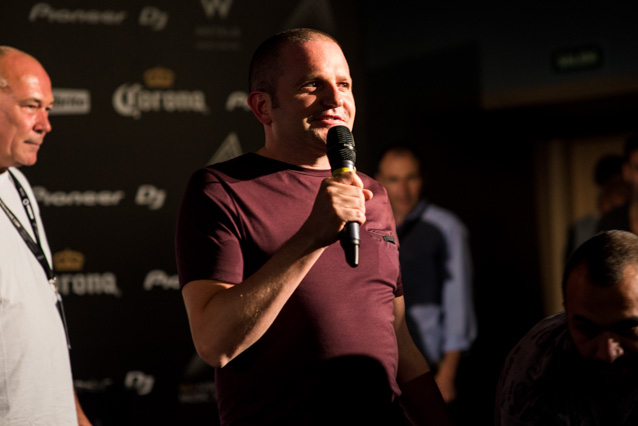 Ben Turner estimates he's been to Ibiza more than 300 times. Over the course of his 20-plus year relationship with the island, he's experienced it from every possible angle: as a customer, journalist, film-maker, businessman, editor, promoter... The list is endless. With such an unbridled passion and in-depth understanding of Ibiza, it made sense for us to sit down and sift through his history.
You came to the island in 1993, what was it that brought you to Ibiza?
I think I'd seen a programme on Channel 4 called A Short Film About Chilling, which at the time was the biggest, most viewed youth culture film on Channel 4, which was quite a new TV channel at the time. I'd never been to Ibiza. I was in love with electronic music but I hadn't really realised there was this island where everything was completely focused on that incredible music. I watched the show over and over again, and eventually found a friend who would come with me and got myself over there.
Within the first 24 hours we went down to Cafe Del Mar and experienced the sunset with Phil Mison, Jose Padilla, Darren Emerson and people like that, and it just completely blew my mind. It was really quite a moving and emotional experience you know, seeing the day go into night with that kind of musical backdrop. So we ended up going back for the next 13 nights of the holiday. Every night began there, and from there sprung all sorts of connections and relationships, and that was it, I was hooked. The clubs were a massive pull but it was as much about the whole spiritual thing and the Balearic sound and the sunset that did it for me.
What were those initial nights out, what kind of music you were listening to, what were the parties?
I was into techno and the DJs at the time, certainly from a UK perspective, were Richie Hawtin, David Holmes, Darren Emerson, Andrew Weatherall. A lot of these guys were getting gigs in Ibiza but I think that a lot of them weren't particularly great gigs. I mean at Richie Hawtin's first gig in Ibiza he famously got asked to stop playing.
Seriously?
At Space, funnily enough. It was not a place for that music. When you think about that, that was 1994, so when Sven [Väth] started Cocoon, you start to realise quite how that guy single-handedly changed the musical landscape of that island for that music.
It wasn't just Richie—the Chemical Brothers hated Ibiza when they played it, horrible experiences, none of them ever wanted to go back. You know it took a long, long time, it really took Sven to pioneer underground music on that island, so it is an incredible shift from what it was like then to what it is like now. Back then though, other than Darren Emerson at Space, we were going to Pacha and Amnesia and the beautiful Balearic music that I'd seen in that 1990 TV show had already gone by that point; there was a lot of very bad commercial music around.
Fast-forward to when you were working at Muzik Magazine, how were you covering Ibiza?
So I went on holiday in '93, went back in '94 as a journalist for Melody Maker, and then launched Muzik Magazine in June 1995. And I think in the first or the second issue I went back to Ibiza and stayed in San Antonio and just did this whole piece on Café Del Mar, about having been so blown away by it. I think I probably went back a couple of times that year, but then from '96 onwards Ibiza was exploding on many levels from a UK audience point of view, so I was probably going back five or six times a summer. And then we were documenting a lot of what was going on but we were trying to filter the crap and really try and focus on the good stuff that was happening. Muzik was very much about that more leftfield, more discerning stuff, but we were still covering Paul Oakenfold's trance parties that he used to do at the top of the hills. There were some pretty interesting things going on at that point. But you know you also had Cream exploding and that whole other side of the island and the whole British promoter invasion thing.
I actually released a book in 1999 about Ibiza, it was called "Inspired Images of the Island of Dance," which Random House published. I also made quite a few TV shows about Ibiza for Channel 4 and ITV and released a compilation called The Chill Out. I was just getting in amongst it you know, as the editor of Muzik I was in a very privileged position and was very well looked after on the island, and I guess these relationships still stand today.
Ben Turner estimates he's been to Ibiza more than 300 times. Over the course of his 20-plus year relationship with the island, he's experienced it from every possible angle: as a customer, journalist, film-maker, businessman, editor, promoter... The list is endless. With such an unbridled passion and in-depth understanding of Ibiza, it made sense for us to sit down and sift through his history.
You came to the island in 1993, what was it that brought you to Ibiza?
I think I'd seen a programme on Channel 4 called A Short Film About Chilling, which at the time was the biggest, most viewed youth culture film on Channel 4, which was quite a new TV channel at the time. I'd never been to Ibiza. I was in love with electronic music but I hadn't really realised there was this island where everything was completely focused on that incredible music. I watched the show over and over again, and eventually found a friend who would come with me and got myself over there.
Within the first 24 hours we went down to Cafe Del Mar and experienced the sunset with Phil Mison, Jose Padilla, Darren Emerson and people like that, and it just completely blew my mind. It was really quite a moving and emotional experience you know, seeing the day go into night with that kind of musical backdrop. So we ended up going back for the next 13 nights of the holiday. Every night began there, and from there sprung all sorts of connections and relationships, and that was it, I was hooked. The clubs were a massive pull but it was as much about the whole spiritual thing and the Balearic sound and the sunset that did it for me.
What were those initial nights out, what kind of music you were listening to, what were the parties?
I was into techno and the DJs at the time, certainly from a UK perspective, were Richie Hawtin, David Holmes, Darren Emerson, Andrew Weatherall. A lot of these guys were getting gigs in Ibiza but I think that a lot of them weren't particularly great gigs. I mean at Richie Hawtin's first gig in Ibiza he famously got asked to stop playing.
Seriously?
At Space, funnily enough. It was not a place for that music. When you think about that, that was 1994, so when Sven [Väth] started Cocoon, you start to realise quite how that guy single-handedly changed the musical landscape of that island for that music.
It wasn't just Richie—the Chemical Brothers hated Ibiza when they played it, horrible experiences, none of them ever wanted to go back. You know it took a long, long time, it really took Sven to pioneer underground music on that island, so it is an incredible shift from what it was like then to what it is like now. Back then though, other than Darren Emerson at Space, we were going to Pacha and Amnesia and the beautiful Balearic music that I'd seen in that 1990 TV show had already gone by that point; there was a lot of very bad commercial music around.
Fast-forward to when you were working at Muzik Magazine, how were you covering Ibiza?
So I went on holiday in '93, went back in '94 as a journalist for Melody Maker, and then launched Muzik Magazine in June 1995. And I think in the first or the second issue I went back to Ibiza and stayed in San Antonio and just did this whole piece on Café Del Mar, about having been so blown away by it. I think I probably went back a couple of times that year, but then from '96 onwards Ibiza was exploding on many levels from a UK audience point of view, so I was probably going back five or six times a summer. And then we were documenting a lot of what was going on but we were trying to filter the crap and really try and focus on the good stuff that was happening. Muzik was very much about that more leftfield, more discerning stuff, but we were still covering Paul Oakenfold's trance parties that he used to do at the top of the hills. There were some pretty interesting things going on at that point. But you know you also had Cream exploding and that whole other side of the island and the whole British promoter invasion thing.
I actually released a book in 1999 about Ibiza, it was called "Inspired Images of the Island of Dance," which Random House published. I also made quite a few TV shows about Ibiza for Channel 4 and ITV and released a compilation called The Chill Out. I was just getting in amongst it you know, as the editor of Muzik I was in a very privileged position and was very well looked after on the island, and I guess these relationships still stand today.
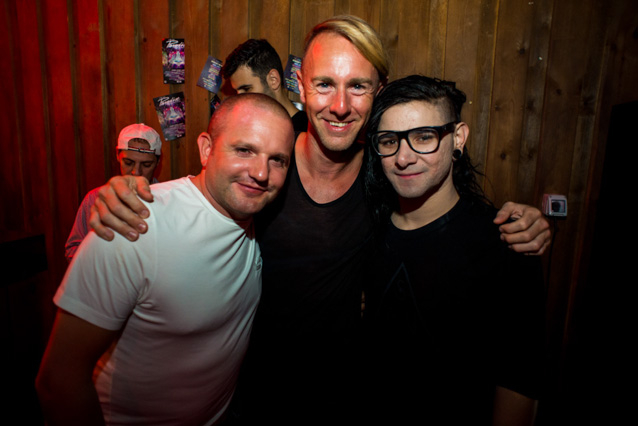 When did Ibiza first become a place of business for you?
At the end of 1999 I was involved in a dot-com called Worldpop.com, which was very heavily funded. It was an online music magazine and I remember we had a webcam for the Ibiza sunset, which I watched every single day I wasn't on the island from my office. And I created a venture called Mobile Ibiza with Pacha and Pete Tong where if you subscribed to our service and took your mobile phone down to the beach bar in San Antonio then got a free ticket into Pacha. It sounds quite basic but in 1999 that was pretty revolutionary.
We were moving people around the island, chasing free tickets around, and we ended up with a huge subscriber base and a really quite visionary platform, so I was really starting to do quite more than just document it as a journalist. Then I started to make these TV programmes and various other things. As Rob da Bank's manager, we did two years of amazing beach parties as Sunday Best—at venues like Cap d'es Falco, Bennirras and Sestanyol. And then in 2003, I launched the magazine for Pacha, which I was the editorial director of for a decade. Back then with Pacha we were trying to correct a misconception of what Ibiza was about, try to really focus on the positive sides of the island and make the island more aspirational. Maybe we made it too aspirational because of what it has now become but it was an important time. Every time I'd see Sven [Väth] over those ten years he would thank for me helping correct the image of the island.
Just going back to 1999 when Cocoon and Circoloco landed—was that something you were going to and documenting from the start?
Yeah, very much so. I actually made a TV programme about DC-10 during its first or second year. It never saw the light of day but I was very proud of what we did with it. It was very crazy afterhours behaviour in those days. I ended up there probably too much, and likewise Cocoon. That first year it was only really one room, the Main Room, and you had this techno legend passing champagne bottles to the crowd. I remember seeing the Prince of Saudi Arabia or something crazy in the VIP. People talk now about how techno has gone all VIP, but Sven had that at his fingertips a long time ago. And seeing this underground techno DJ kind of embrace the Ibiza lifestyle, I was always warmed by that and took great enjoyment out of seeing him enjoy himself so much.
You've experience the island from every possible vantage point. Do you still love it as much as you used to?
Yeah I really do, though I'm there with a lot more responsibility now than before. The thing for me was I always wanted Ibiza to be promoted and documented the right way. TV shows, magazines, conferences, events, festivals... I've done everything I can to deliver something special to Ibiza, but also something special to the outside world looking in. I've fought very hard against Sky and all the other channels that have come here and trashed the scene, exposing the island for all its negatives. At the end of the day, electronic music has changed people's lives forever, and it's currently doing the same to a new generation. The positives far outweigh the negatives. I care deeply and passionately about how this music is perceived and about how the media document it. Ibiza is at the heart of all that.
This week on the island
When did Ibiza first become a place of business for you?
At the end of 1999 I was involved in a dot-com called Worldpop.com, which was very heavily funded. It was an online music magazine and I remember we had a webcam for the Ibiza sunset, which I watched every single day I wasn't on the island from my office. And I created a venture called Mobile Ibiza with Pacha and Pete Tong where if you subscribed to our service and took your mobile phone down to the beach bar in San Antonio then got a free ticket into Pacha. It sounds quite basic but in 1999 that was pretty revolutionary.
We were moving people around the island, chasing free tickets around, and we ended up with a huge subscriber base and a really quite visionary platform, so I was really starting to do quite more than just document it as a journalist. Then I started to make these TV programmes and various other things. As Rob da Bank's manager, we did two years of amazing beach parties as Sunday Best—at venues like Cap d'es Falco, Bennirras and Sestanyol. And then in 2003, I launched the magazine for Pacha, which I was the editorial director of for a decade. Back then with Pacha we were trying to correct a misconception of what Ibiza was about, try to really focus on the positive sides of the island and make the island more aspirational. Maybe we made it too aspirational because of what it has now become but it was an important time. Every time I'd see Sven [Väth] over those ten years he would thank for me helping correct the image of the island.
Just going back to 1999 when Cocoon and Circoloco landed—was that something you were going to and documenting from the start?
Yeah, very much so. I actually made a TV programme about DC-10 during its first or second year. It never saw the light of day but I was very proud of what we did with it. It was very crazy afterhours behaviour in those days. I ended up there probably too much, and likewise Cocoon. That first year it was only really one room, the Main Room, and you had this techno legend passing champagne bottles to the crowd. I remember seeing the Prince of Saudi Arabia or something crazy in the VIP. People talk now about how techno has gone all VIP, but Sven had that at his fingertips a long time ago. And seeing this underground techno DJ kind of embrace the Ibiza lifestyle, I was always warmed by that and took great enjoyment out of seeing him enjoy himself so much.
You've experience the island from every possible vantage point. Do you still love it as much as you used to?
Yeah I really do, though I'm there with a lot more responsibility now than before. The thing for me was I always wanted Ibiza to be promoted and documented the right way. TV shows, magazines, conferences, events, festivals... I've done everything I can to deliver something special to Ibiza, but also something special to the outside world looking in. I've fought very hard against Sky and all the other channels that have come here and trashed the scene, exposing the island for all its negatives. At the end of the day, electronic music has changed people's lives forever, and it's currently doing the same to a new generation. The positives far outweigh the negatives. I care deeply and passionately about how this music is perceived and about how the media document it. Ibiza is at the heart of all that.
This week on the island
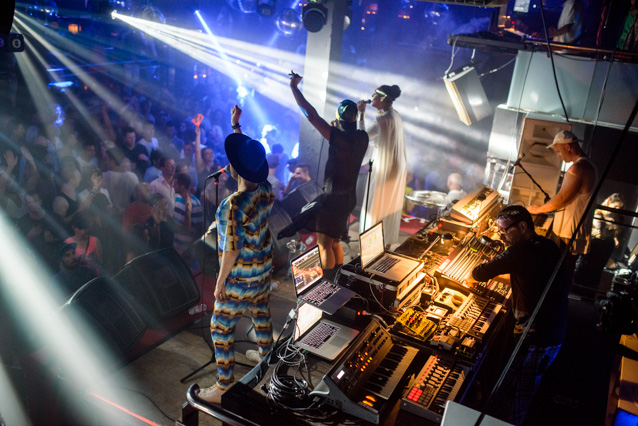 Glitterbox at Booom! Ibiza
Glitterbox has been through something of a transformation in recent weeks. My last visit, in late June for Greg Wilson, was characterised by fantastic music and too-few people to hear it. But as my ears adjusted to the classic-tinged sounds of Dimitri From Paris last weekend, I instantly found myself bobbing and weaving amongst the throng. There's no denying it: the party looked better busy. Ranging from preppy teens and mature mothers to gay couples, there was a distinctly mixed crowd, reflecting disco's all-inclusive ethos. As if to celebrate the fact, Dimitri set a lively tone from early on, dropping his edit of Prince's "I Wanna Be Your Lover," followed by Chaka Khan's "I'm Every Woman," to a volley of feet-stomping approval.
The night's indisputable main draw, though, was Hercules & Love Affair. Currently touring live, the New York collective worked the crowd from a side stage, settling straight into their blend of diva vocals and chunky house beats. Comprising two singers (later three) and Andy Butler and Mark Pistel on Ableton, synths and effects, the show was largely captivating (especially their rendition of the "Good Life"-inspired hit "You Belong.") The only gripe was that "Blind" sounded too sinister, lacking the warmth and depth of Anthony Hegarty's original performance. It was great to see Glitterbox in full swing on Saturday, playing host to some of Ibiza's more colourful characters.
Glitterbox at Booom! Ibiza
Glitterbox has been through something of a transformation in recent weeks. My last visit, in late June for Greg Wilson, was characterised by fantastic music and too-few people to hear it. But as my ears adjusted to the classic-tinged sounds of Dimitri From Paris last weekend, I instantly found myself bobbing and weaving amongst the throng. There's no denying it: the party looked better busy. Ranging from preppy teens and mature mothers to gay couples, there was a distinctly mixed crowd, reflecting disco's all-inclusive ethos. As if to celebrate the fact, Dimitri set a lively tone from early on, dropping his edit of Prince's "I Wanna Be Your Lover," followed by Chaka Khan's "I'm Every Woman," to a volley of feet-stomping approval.
The night's indisputable main draw, though, was Hercules & Love Affair. Currently touring live, the New York collective worked the crowd from a side stage, settling straight into their blend of diva vocals and chunky house beats. Comprising two singers (later three) and Andy Butler and Mark Pistel on Ableton, synths and effects, the show was largely captivating (especially their rendition of the "Good Life"-inspired hit "You Belong.") The only gripe was that "Blind" sounded too sinister, lacking the warmth and depth of Anthony Hegarty's original performance. It was great to see Glitterbox in full swing on Saturday, playing host to some of Ibiza's more colourful characters.
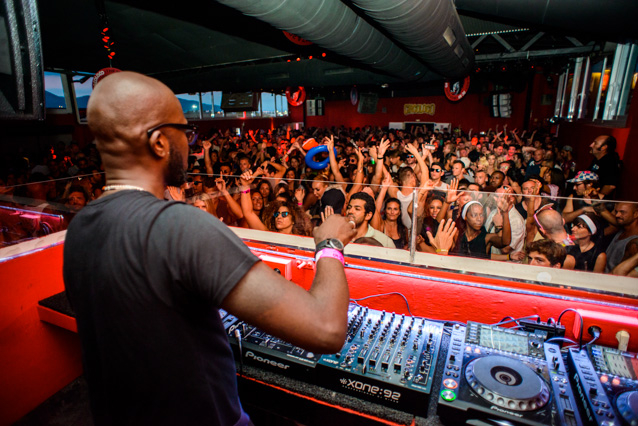 Circoloco 16th anniversary at DC-10
From looking at DC-10, you wouldn't have guessed Circoloco was celebrating its birthday on Monday. There were no balloons, no streamers, not even an oversized clown face in sight. And the lineup was solid, as ever, without drawing any gasps. But then again, Circoloco always has a jubilant energy, especially during The Garden's opening hours. Since it has become a permanent fixture, The Martinez Brothers have dominated the space, with their brand of spirited house music a perfect fit for the environment. For the anniversary, the Bronx pair appeared to be smiling more than usual, inflecting their signature swing with some heavy-duty 303s and dramatic breakdowns.
Meanwhile inside, another DJ was staking his claim as the next in line to the Terrace throne. Back for the third time, Black Coffee was once again presented with the tricky sunset slot. Unfazed, the South African DJ owned the room from the go, wowing the audience with his fusion of choppy African rhythms, huge synth lines and sad, soaring vocals. It's an epic sound, and one that garnered reactions unlike any I've seen in that room. After, it was over to the Main Room for a varied and uplifting set of house and techno from Ryan Elliott. Damiano Von Erckert's "House Em" was the highlight, upstaged only by a sudden entrance from P. Diddy, Naomi Campbell and R&B singer Cassie. While the latter two hid behind large shades and a fan, Diddy did the opposite, commanding the booth from every angle.
Circoloco 16th anniversary at DC-10
From looking at DC-10, you wouldn't have guessed Circoloco was celebrating its birthday on Monday. There were no balloons, no streamers, not even an oversized clown face in sight. And the lineup was solid, as ever, without drawing any gasps. But then again, Circoloco always has a jubilant energy, especially during The Garden's opening hours. Since it has become a permanent fixture, The Martinez Brothers have dominated the space, with their brand of spirited house music a perfect fit for the environment. For the anniversary, the Bronx pair appeared to be smiling more than usual, inflecting their signature swing with some heavy-duty 303s and dramatic breakdowns.
Meanwhile inside, another DJ was staking his claim as the next in line to the Terrace throne. Back for the third time, Black Coffee was once again presented with the tricky sunset slot. Unfazed, the South African DJ owned the room from the go, wowing the audience with his fusion of choppy African rhythms, huge synth lines and sad, soaring vocals. It's an epic sound, and one that garnered reactions unlike any I've seen in that room. After, it was over to the Main Room for a varied and uplifting set of house and techno from Ryan Elliott. Damiano Von Erckert's "House Em" was the highlight, upstaged only by a sudden entrance from P. Diddy, Naomi Campbell and R&B singer Cassie. While the latter two hid behind large shades and a fan, Diddy did the opposite, commanding the booth from every angle.
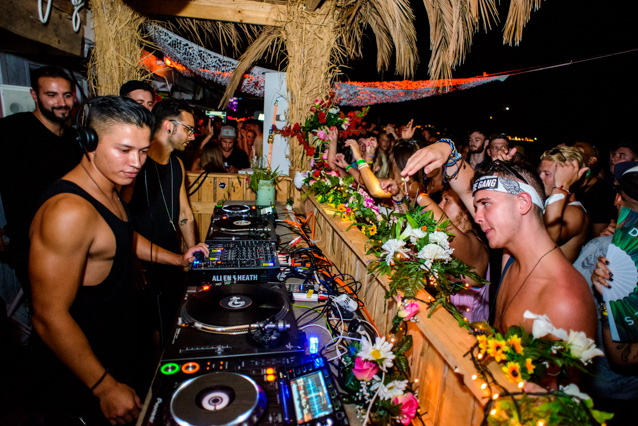 tINI and the gang at Sands
There are lots of positives to draw from tINI's residency at Sands, but arguably none more so than the discovery of new talent. With none of the budget of the big clubs, the Munich DJ builds her lineups from a mix of small-time DJ talent, close friends and the odd big name. As a result, her party has become one of the few places on the island to hear undiscovered underground acts, outside of the workers scene in San Antonio. Two such names are David GTronic and Chad Andrew, residents of the We Are Rebels boat parties. The pair played back-to-back for more than two hours on Wednesday, weaving cohesively between gravelly house, crackly dub techno and swinging tech house. Impressively, the energy never dipped during their set.
At 10:30 PM, tINI took her place in front of the masses. Her set felt more musical than usual, lacing her dubby drums with Eastern pipes, R&B samples and breathy vocals. Regardless of what was layered atop, however, the basslines remained as twisted as ever. As the sun dips beneath the mountains behind Sands, a sense of abandonment creeps over the beach club, encouraged by tINI's sleek, dark music. Outside, it's packed and almost pitch black, while inside people either lie draped over armchairs or mill about talking. There's something fresh and unstuffy about the place, largely because it attracts a young audience. It's a crowd that's musically savvy, too, which isn't easy to come across in Ibiza.
Elsewhere...
tINI and the gang at Sands
There are lots of positives to draw from tINI's residency at Sands, but arguably none more so than the discovery of new talent. With none of the budget of the big clubs, the Munich DJ builds her lineups from a mix of small-time DJ talent, close friends and the odd big name. As a result, her party has become one of the few places on the island to hear undiscovered underground acts, outside of the workers scene in San Antonio. Two such names are David GTronic and Chad Andrew, residents of the We Are Rebels boat parties. The pair played back-to-back for more than two hours on Wednesday, weaving cohesively between gravelly house, crackly dub techno and swinging tech house. Impressively, the energy never dipped during their set.
At 10:30 PM, tINI took her place in front of the masses. Her set felt more musical than usual, lacing her dubby drums with Eastern pipes, R&B samples and breathy vocals. Regardless of what was layered atop, however, the basslines remained as twisted as ever. As the sun dips beneath the mountains behind Sands, a sense of abandonment creeps over the beach club, encouraged by tINI's sleek, dark music. Outside, it's packed and almost pitch black, while inside people either lie draped over armchairs or mill about talking. There's something fresh and unstuffy about the place, largely because it attracts a young audience. It's a crowd that's musically savvy, too, which isn't easy to come across in Ibiza.
Elsewhere...
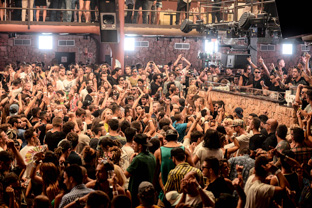 For the second week in a row, Joseph Capriati does a great job in lieu of an ill Marco Carola at Music On. The main man returns this week, joined by Jamie Jones. View gallery
For the second week in a row, Joseph Capriati does a great job in lieu of an ill Marco Carola at Music On. The main man returns this week, joined by Jamie Jones. View gallery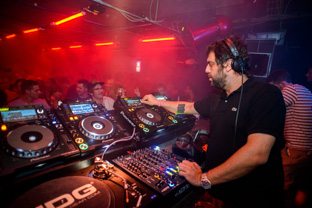 DJ Tennis scrolls through his collection at Flying Circus on Friday. View gallery
DJ Tennis scrolls through his collection at Flying Circus on Friday. View gallery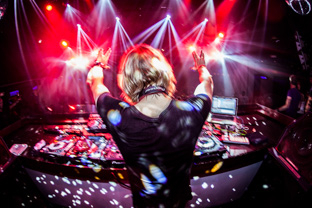 James Zabiela sees stars during his headline set in the Discoteca at We Love... View gallery
James Zabiela sees stars during his headline set in the Discoteca at We Love... View gallery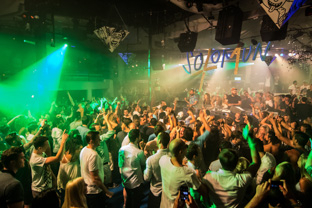 Solomun's +1s on Sunday were Cologne pair Simon Haehnel and Tobias Mueller, AKA Andhim. View gallery
Solomun's +1s on Sunday were Cologne pair Simon Haehnel and Tobias Mueller, AKA Andhim. View gallery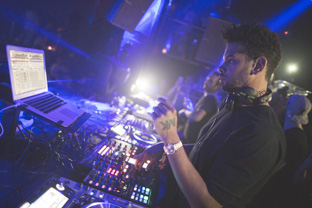 MK lines up his next crowd-pleaser at this week's Defected. View gallery
MK lines up his next crowd-pleaser at this week's Defected. View gallery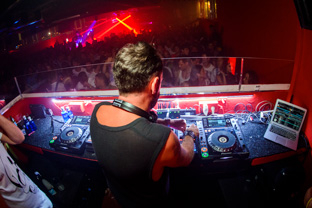 By all accounts, Steve Lawler rocked the DC-10 Terrace in place of Marco Carola on Wednesday. View galleryPhoto credit: Music On - David Pareja Solomun +1 - Jordi Cervera We Love - Nel G Defected - Ryan Dinham All others - Tasya Menaker For more information on what's happening on the island in 2014, check out our comprehensive Ibiza guide below.
By all accounts, Steve Lawler rocked the DC-10 Terrace in place of Marco Carola on Wednesday. View galleryPhoto credit: Music On - David Pareja Solomun +1 - Jordi Cervera We Love - Nel G Defected - Ryan Dinham All others - Tasya Menaker For more information on what's happening on the island in 2014, check out our comprehensive Ibiza guide below.